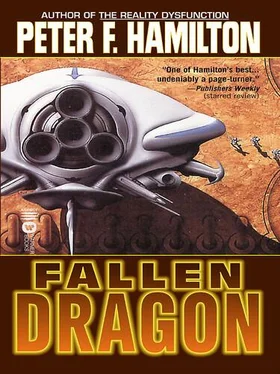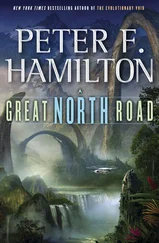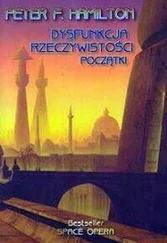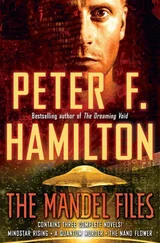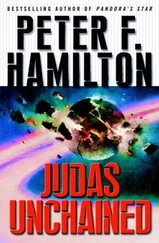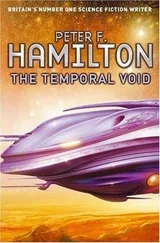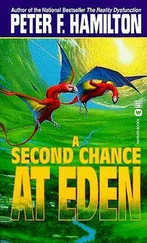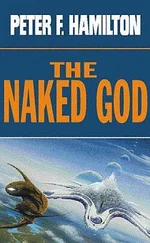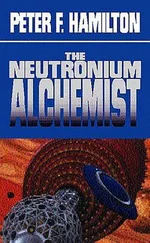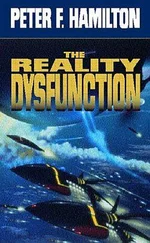Peter Hamilton - Fallen Fragon
Здесь есть возможность читать онлайн «Peter Hamilton - Fallen Fragon» весь текст электронной книги совершенно бесплатно (целиком полную версию без сокращений). В некоторых случаях можно слушать аудио, скачать через торрент в формате fb2 и присутствует краткое содержание. Жанр: Фантастика и фэнтези, на английском языке. Описание произведения, (предисловие) а так же отзывы посетителей доступны на портале библиотеки ЛибКат.
- Название:Fallen Fragon
- Автор:
- Жанр:
- Год:неизвестен
- ISBN:нет данных
- Рейтинг книги:3 / 5. Голосов: 1
-
Избранное:Добавить в избранное
- Отзывы:
-
Ваша оценка:
- 60
- 1
- 2
- 3
- 4
- 5
Fallen Fragon: краткое содержание, описание и аннотация
Предлагаем к чтению аннотацию, описание, краткое содержание или предисловие (зависит от того, что написал сам автор книги «Fallen Fragon»). Если вы не нашли необходимую информацию о книге — напишите в комментариях, мы постараемся отыскать её.
Fallen Fragon — читать онлайн бесплатно полную книгу (весь текст) целиком
Ниже представлен текст книги, разбитый по страницам. Система сохранения места последней прочитанной страницы, позволяет с удобством читать онлайн бесплатно книгу «Fallen Fragon», без необходимости каждый раз заново искать на чём Вы остановились. Поставьте закладку, и сможете в любой момент перейти на страницу, на которой закончили чтение.
Интервал:
Закладка:
They did as they were told, unbuckling the restraints and gingerly easing themselves out of the deep seats. It had been over eighteen months since any of them had been in freefall, and it showed—sluggish movements suddenly becoming wild spins. Desperate grabs. Elbows thudding painfully into lockers and seat corners. Lawrence Velcroed his bag to his chest, and used the inset handles along the ceiling to make his way forward. In his mind, he tried to match the process with climbing a ladder. A good grounding psychology: always try for a solid visual reference. Except here his legs wanted to slide out to the side and twist him around. His abdominal muscles tensed, trying to keep his body straight. Someone knocked into his feet. When he glanced around to glare, Odel Cureton was grimacing in apology, his own body levering around his tenuous handhold, putting a lot of strain on his wrists.
"Sorry, Sarge." It was a fast grunt. Odel was trying not to puke.
Lawrence moved a little faster, remembering to kill his motion just before he reached the airlock. He slithered easily around the corner and through the hatch, pleased with the way the old reflexes were coming back.
The Moray was as crude inside as it was outside, stark aluminum bulkheads threaded with dozens of pipes and conduits, hand loops bristling everywhere. The air reeked of urine and chlorine. It must have been strong: Lawrence's sense of smell was fast diminishing beneath clogged sinuses. One of the crew was waiting for him on the other side of the airlock. Lawrence gave him their platoon number, and in return was told what berth they'd been assigned. Each of the big habitation cylinders was color coded. Lawrence led the cursing, clumsy platoon down into the yellow one. Voices echoed about him, coming from open hatchways—other platoons bitching about the conditions and how ill some of their buddies were and why didn't someone do something about bastard freefall. Twice Lawrence banged himself on the walls as they scrambled their way along the central tubular passageway; elbow and knee. By the time he slipped into their compartment he could feel the bruises rising.
The others crawled in after him, moaning and wincing, looking round sullenly. Their compartment was a simple wedge shape. It had three rows of couch chairs with simple hold-you-down straps, a pair of freefall toilets, a locker full of packaged no-crumble meals, a microwave slot and a water fountain with four long hoses ending in stainless-steel valves. Someone had written: Don't even think about it on the aluminum concertina door of one toilet. What would become the ceiling when the ion drive was running was covered with a sheet screen. It was orientated so that anyone in the chair couches would have a reasonable view. A Z-B strategic security logo glowed faintly in the center purple omega symbol bracketing the earth, crowned by five stars.
Hal stowed his bag and flew across the compartment, turning a fast somersault on the way. "This is fucking amazing. Hey, what kind of i-media are they going to give us, anyone know?"
"You don't get i-media in a crate like this," Odel said in exasperation. "This isn't a pleasure cruise, kid. You worked that out yet? You'll be lucky if they've got black-and-white films." He put his glasses on, leaving the display lenses clear, but settling the audio plugs in his ears. Thin vertical scarlet lines appeared on the lenses as he called up a menu. He worked down a playlist of rock tracks from centuries-old classics right up to Beefbat and Tojo Wall, then settled back contentedly as they began to play.
Lawrence sighed, fastening himself loosely into one of the couch chairs. It could have been worse. Some platoons had boosted out of Cairns ten days ago. At least he only had another four days until the Third Fleet departed from Centralis. Perhaps they could put something in the kid's food.
* * *
Simon Roderick went down to the observation gallery half an hour before the portal opening. There were over a hundred people crammed into the small chamber protruding from the surface of Centralis. Somehow they contrived to give him a little patch of free space in front of the thick glass where he could stand by himself. They were silent, though Simon could sense their minds spiking with resentment and disquiet. As always, he ignored their pusillanimous nature with his usual contempt. The physical discomfort of Centralis itself couldn't be dismissed quite so easily, however.
Centrifugal force didn't make him giddy, although he often caught himself wishing for a full one-gravity field.
Centralis was too small for that, its rotation producing slightly less than two-thirds of a gee around its outermost level.
Back in the mid-1970s when Gerard K. O'Neill was putting his High Frontier concept together he produced several designs for space "islands." Starting with the simple Bernal sphere at four hundred meters in diameter, the concepts progressed up to the paradise garden of "Island Three": linked twin cylinders twenty kilometers long. All of them were admittedly achievable with relatively simple engineering procedures. The problem came in gathering together that much material with the requisite construction crews and their assembly equipment in an era when it cost upward of two hundred million U.S. dollars to launch a single space shuttle.
Scramjet spaceplanes eased the problem of cheaper access to space. But as they helped to build low-orbit stations and their associated industrial modules, so they reduced the need for vast habitats. Even in a rampant consumer society, the quantity of ultraspecialist crystals and chemicals that could be produced only in microgee facilities was limited to a few hundred metric tons a year—a figure easily supervised by small tough crews paid exorbitant salaries to endure the generally unpleasant conditions to be found in Earth-orbit space stations.
It was only in 2070, when a method of faster-than-light travel was developed, that there was any need for large high-orbit dormitory towns. Starships were neither compact nor cheap: they needed thousands of people to construct the massive superstructure and integrate hundreds of thousands of components into a functional whole. As they were too big to take off or land on a planet, they had to be built in space. O'Neill's old ideas were pulled out of university libraries and studied afresh.
One critical development since O'Neill's day was synthetic food production. The old island designs were driven by the need to provide vast amounts of farmland to feed the indigenous population. His cylinders had been given multiple-wheel crystal palace geometries and elegant necklaces of agricultural modules so they would be self-sufficient. The new designs discarded all that baggage. All they needed was a couple of refinery modules to process excrement back into protein cells. The starship companies still kept the idea of a central garden park; that kind of open space was acknowledged as a primary psychological requirement for the crews that would have to spend months if not years up in the islands. And that much biota was a reasonably cost-effective fail-safe air regeneration system. But the rest of it, the luxurious landscapes, meandering freshwater lakes, the giant windows with their fans of mechanically swiveled mirrors, Caribbean climates and nuclear family neighborhoods of open-plan Italian villas—that was all condensed and modernized.
Centralis, which was Z-B's primary Lagrange point facility, adopted a plain cylinder geometry, five hundred meters in diameter and one kilometer long. Its apartment complexes were as cramped as any low-rent city skyscraper, only these were ring-shaped, occupying the lower fifty meters of each circular endwall. The garden between them, like any urban park, was overutilized and overmaintained. Shrubs and trees grew tall and spindly on the thin layer of crashed rock sand that passed for soil, the fusion-powered plasma tube running along the axis never providing the right level of UV. But it had ponds with fountains and expensive koi carp, and picnic tables, and a jogging track, and baseball diamonds, and tennis courts. Although it took months for the Johnny-come-latelies to pick up on the Coriolis-driven double curve flight of balls.
Читать дальшеИнтервал:
Закладка:
Похожие книги на «Fallen Fragon»
Представляем Вашему вниманию похожие книги на «Fallen Fragon» списком для выбора. Мы отобрали схожую по названию и смыслу литературу в надежде предоставить читателям больше вариантов отыскать новые, интересные, ещё непрочитанные произведения.
Обсуждение, отзывы о книге «Fallen Fragon» и просто собственные мнения читателей. Оставьте ваши комментарии, напишите, что Вы думаете о произведении, его смысле или главных героях. Укажите что конкретно понравилось, а что нет, и почему Вы так считаете.
